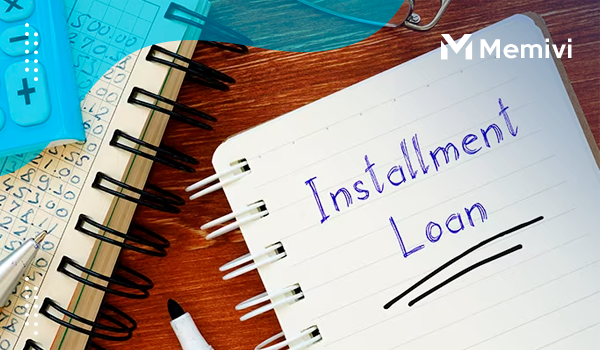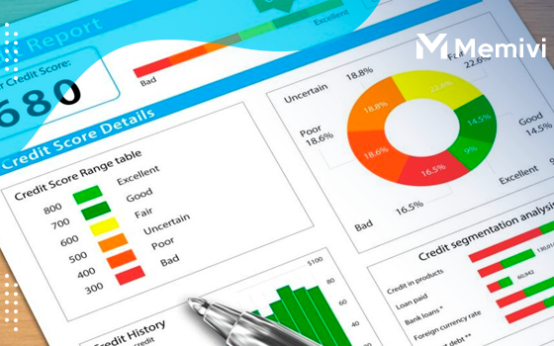
If you’re in need of quick cash, installment loans may be an option worth considering. Unlike traditional loans, installment loan have a set repayment schedule and fixed interest rates. They are designed to be paid back over time in small installments, making them a great option for those who need a little bit of extra money and want the ability to pay it back in manageable amounts. But before you dive in, it’s important to understand the ins and outs of installment loans.
In this post, we’ll take a closer look at what installment loans are, how they work, and what you should consider before taking one out. With this comprehensive guide, you’ll be better equipped to make an informed decision about whether an installment loan is right for you.
Introduction to installment loan
Financial needs can sometimes arise unexpectedly, and when they do, it’s essential to have access to reliable and flexible borrowing options. One such option that has gained popularity in recent years is installment loans.
Unlike traditional loans that require a lump sum repayment, installment loans provide borrowers with the convenience of repaying the loan amount in fixed monthly installments over an agreed period. Installment loans are designed to meet various financial needs, such as purchasing a new car, covering medical expenses, or funding home renovations. These loans offer borrowers the flexibility to borrow a specific amount of money and then repay it in equal installments, typically over several months or years.
One of the primary advantages of installment loans is the predictable repayment structure they offer. With fixed monthly payments, borrowers can plan their budgets accordingly without worrying about fluctuating interest rates or unexpected repayment amounts. This stability can be particularly beneficial for individuals who prefer structured repayment plans and those who find it challenging to repay a large sum of money all at once.
How do installment loans work?
Installment loans are a popular form of borrowing that provide individuals with the flexibility to repay a loan over a set period of time. Unlike payday loans or credit cards that require full repayment by a specific due date, installment loans offer borrowers the convenience of paying off the loan in smaller, more manageable installments. The way installment loans work is quite straightforward.
When you apply for an installment loan, you will typically provide information such as your income, employment status, and credit history. Based on this information, the lender will evaluate your eligibility and determine the loan amount you qualify for.
Once approved, you will receive the loan amount in a lump sum, which you can use for various purposes such as paying off debts, covering medical expenses, or funding home improvements. The loan agreement will outline the terms and conditions, including the repayment schedule and interest rate.
Repayment of installment loans is structured into equal monthly payments. These payments typically include both the principal amount borrowed and the interest charged by the lender. As you make each payment, a portion goes towards reducing the loan balance, while the remainder covers the interest charges.
Types of installment loan
When it comes to installment loans, there are various types available to suit different financial needs. Understanding these types can help you make informed decisions and choose the right loan for your specific circumstances.
- Personal Installment Loans: These are versatile loans that can be used for a wide range of purposes, such as debt consolidation, home improvements, or unexpected expenses. They typically have fixed interest rates and monthly payments, allowing borrowers to budget accordingly.
- Auto Loans: As the name suggests, auto loans are specifically designed for purchasing vehicles. They can be obtained from banks, credit unions, or car dealerships. Auto loans often have competitive interest rates and a fixed repayment schedule.
- Mortgage Loans: Mortgage loans are used to finance the purchase of real estate properties. They are generally long-term loans, lasting for 15 to 30 years. Mortgage loans have varying interest rates, and borrowers often need to make a down payment to secure the loan.
- Student Loans: These loans are specifically for funding education expenses, such as tuition fees, books, and living costs. Student loans can be obtained from the government or private lenders, and they typically offer flexible repayment options, including income-driven plans.
- Small Business Loans: Entrepreneurs and business owners often rely on small business loans to start or expand their ventures. These loans can provide necessary capital for equipment purchases, inventory, or operational expenses. Small business loans may require collateral and have specific eligibility criteria.
- Payday Loans: Payday loans are short-term loans intended to cover immediate financial needs until the borrower’s next paycheck. However, they often come with high interest rates and fees, making them a less favorable option compared to other installment loans.
It’s important to carefully consider the terms and understand the potential risks associated with payday loans. Understanding the different types of installment loans can help you evaluate which one aligns best with your financial goals and needs. It’s crucial to compare interest rates, repayment terms, and eligibility requirements before making a decision. Remember to borrow responsibly and only take on loans that you can comfortably repay.
How to apply for an installment loan?
Applying for an installment loan may seem like a daunting process, but it can actually be quite straightforward. Here are the steps to follow when applying for an installment loan:
- Research and compare lenders: Start by researching different lenders to find the one that best suits your needs. Look for reputable lenders with favorable terms and interest rates.
- Gather necessary documents: Before applying, gather all the necessary documents that the lender may require. Generally, you will need proof of identity, proof of income, and proof of address. Having these documents ready will streamline the application process.
- Fill out the application: Most lenders offer online applications, making it convenient and efficient to apply from the comfort of your own home. Fill out the application form accurately and provide all the required information. Double-check your entries to avoid any errors or delays.
- Provide supporting documents: Along with the application form, you may need to submit supporting documents such as bank statements, pay stubs, or tax returns. These documents help lenders verify your financial stability and ability to repay the loan.
- Review and sign the loan agreement: Once your application is submitted, the lender will review it and determine if you meet their eligibility criteria. If approved, they will provide you with a loan agreement detailing the terms of the loan, including the repayment schedule, interest rate, and any additional fees. Carefully review the agreement, making sure you understand all the terms before signing it.
- Receive funds and make payments: After signing the loan agreement, the lender will disburse the funds to your bank account. Make sure you understand the repayment schedule and set up automatic payments if available. Timely payments will help you build a positive credit history and avoid any late fees or penalties.
Remember, it’s important to borrow responsibly and only take out an installment loan if you are confident in your ability to repay it. Understanding the application process and choosing a reputable lender will help ensure a smooth and successful borrowing experience.
Conclusion and final thoughts on installment loans

In conclusion, installment loans can be a useful financial tool when used responsibly and with a clear understanding of the terms and conditions. They offer flexibility and convenience for those in need of immediate funds, allowing for manageable repayment schedules over a specified period of time. However, it is crucial to approach installment loans with caution and careful consideration.
Before applying for an installment loan, it is essential to thoroughly evaluate your financial situation and determine if borrowing is the best option for your specific needs. Consider alternative solutions such as budgeting, saving, or exploring other forms of credit that may be more suitable.


 Best Allowance and Chore App for Kids <p class='sec-title' style='line-height: normal; font-weight: normal;font-size: 16px !important; text-align: left;margin-top: 8px;margin-bottom: 0px !important;'> As parents, we all know how challenging it can be to teach our children the value of money and how to manage it effectively. </p>
Best Allowance and Chore App for Kids <p class='sec-title' style='line-height: normal; font-weight: normal;font-size: 16px !important; text-align: left;margin-top: 8px;margin-bottom: 0px !important;'> As parents, we all know how challenging it can be to teach our children the value of money and how to manage it effectively. </p>  Victory for Consumers as All Three Credit Bureaus Now Offer Weekly Free Report Access <p class='sec-title' style='line-height: normal; font-weight: normal;font-size: 16px !important; text-align: left;margin-top: 8px;margin-bottom: 0px !important;'> In a victory for consumers everywhere, all three credit bureaus have announced that they will now offer free weekly credit reports. </p>
Victory for Consumers as All Three Credit Bureaus Now Offer Weekly Free Report Access <p class='sec-title' style='line-height: normal; font-weight: normal;font-size: 16px !important; text-align: left;margin-top: 8px;margin-bottom: 0px !important;'> In a victory for consumers everywhere, all three credit bureaus have announced that they will now offer free weekly credit reports. </p>  Revolutionizing Comfort: The Best HVAC Software of 2024 <p class='sec-title' style='line-height: normal; font-weight: normal;font-size: 16px !important; text-align: left;margin-top: 8px;margin-bottom: 0px !important;'> As technology advances, it's becoming increasingly more important to use software that can help streamline your business and keep you competitive. </p>
Revolutionizing Comfort: The Best HVAC Software of 2024 <p class='sec-title' style='line-height: normal; font-weight: normal;font-size: 16px !important; text-align: left;margin-top: 8px;margin-bottom: 0px !important;'> As technology advances, it's becoming increasingly more important to use software that can help streamline your business and keep you competitive. </p>